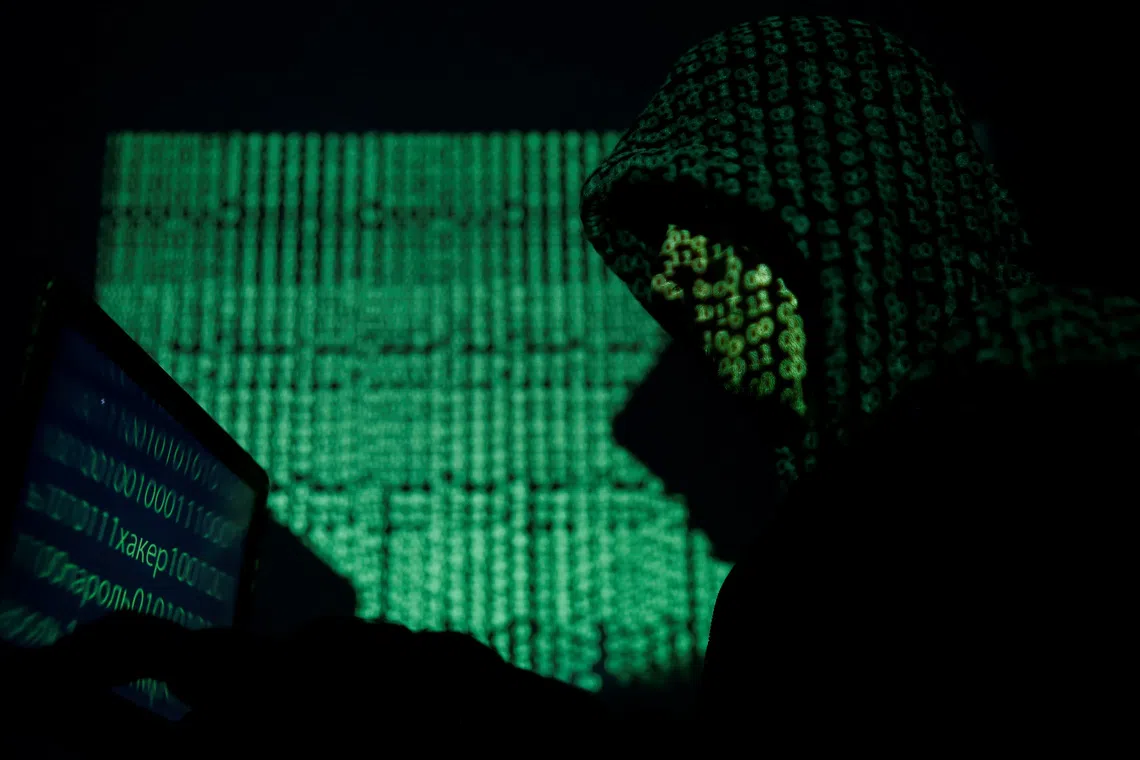Teens make up half of South Korea’s cybersex crime suspects
Sign up now: Get insights on Asia's fast-moving developments

The police discovered that deepfake crimes accounted for the largest share of cybersex offences reported, at 35.2 per cent of the total.
PHOTO: REUTERS
SEOUL – South Korean police said on Nov 17 that they had arrested more than 3,500 suspects over the past year in a sweeping crackdown on cybersex crimes, with nearly half of the offenders being teenagers.
According to the Korean National Police Agency’s (KNPA) National Office of Investigation, the nationwide operation – conducted between November 2024 and October 2025 – uncovered 3,411 cybersex crime cases among the 4,413 reported. This led to 3,557 suspects being booked, 221 of whom were taken into custody.
The police launched the crackdown after August 2024, when Telegram chatrooms where members shared sexually explicit images of people they knew were uncovered. The images were generated using deepfake technology that employs artificial intelligence to create realistic but fake images and videos.
In its crackdown, the police discovered that deepfake crimes accounted for the largest share of cybersex offences reported, totalling 1,553 cases, or 35.2 per cent, of the total.
Other major offences included the possession and distribution of sexual exploitation material featuring minors (1,513 cases) and the production or circulation of illegally taken content (857 cases). When deepfake materials involved children or teenagers, the crimes were counted under both categories.
Police data showed that a majority of the offenders were teenagers, making up 47.6 per cent of all suspects. This was followed by individuals in their 20s at 33.2 per cent, and those in their 30s and 40s at 12.7 per cent and 4.6 per cent, respectively.
When narrowed down to deepfake-related offences, the teen share jumped to 61.8 per cent, or 895 individuals, while the number of offenders in their 20s accounted for 30.2 per cent.
Police attributed these numbers to young people’s digital fluency and accessibility to editing tools.
According to KNPA, the total number of arrests for cybersex crimes represented a 47.8 per cent increase from the same period a year earlier, when 2,406 suspects were apprehended.
The officials stated that the sharp rise was partly due to the rapid advancement of AI technologies that made deepfake production easier, as well as a legal revision made to the Act on the Special Cases Concerning the Punishment of Sexual Crimes, which broadened the scope of punishment for sexual crimes committed using deepfake technologies.
KNPA said it plans to extend the crackdown until October 2026, focusing on AI-generated crimes and emerging abuses of generative technology. The agency will continue working with platforms such as Telegram and the Korea Communications Standards Commission to remove or block explicit videos.
In response to the high proportion of teenage offenders, the police will work with the South Korean Ministry of Education to expand deepfake-crime prevention materials in schools and strengthen youth awareness campaigns. THE KOREA HERALD/ASIA NEWS NETWORK


